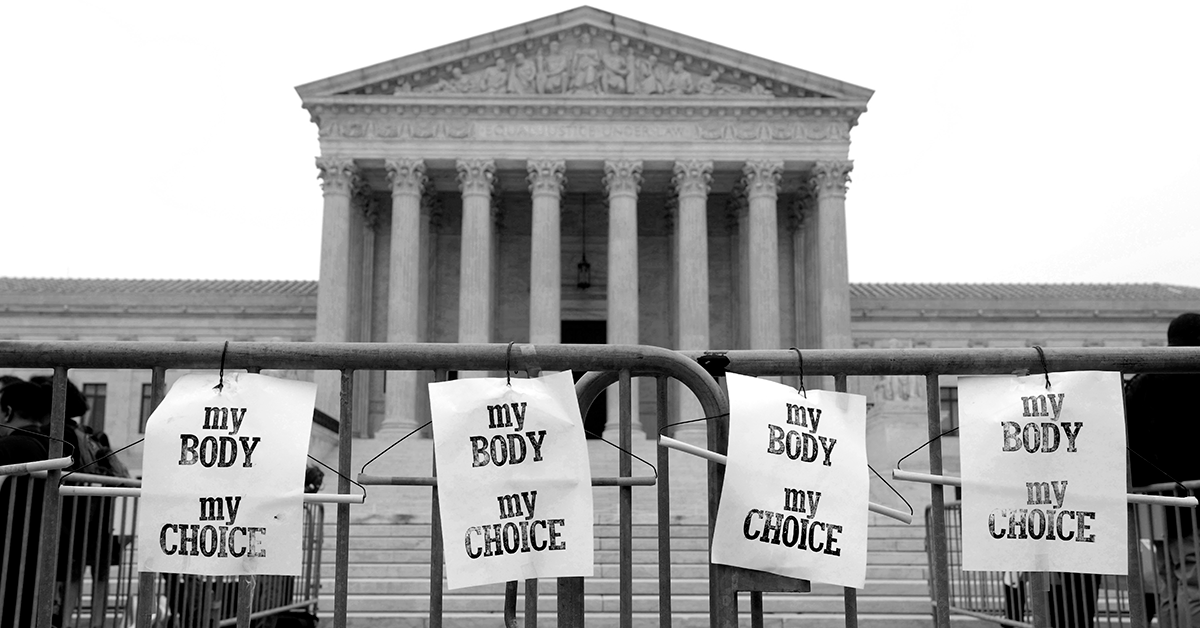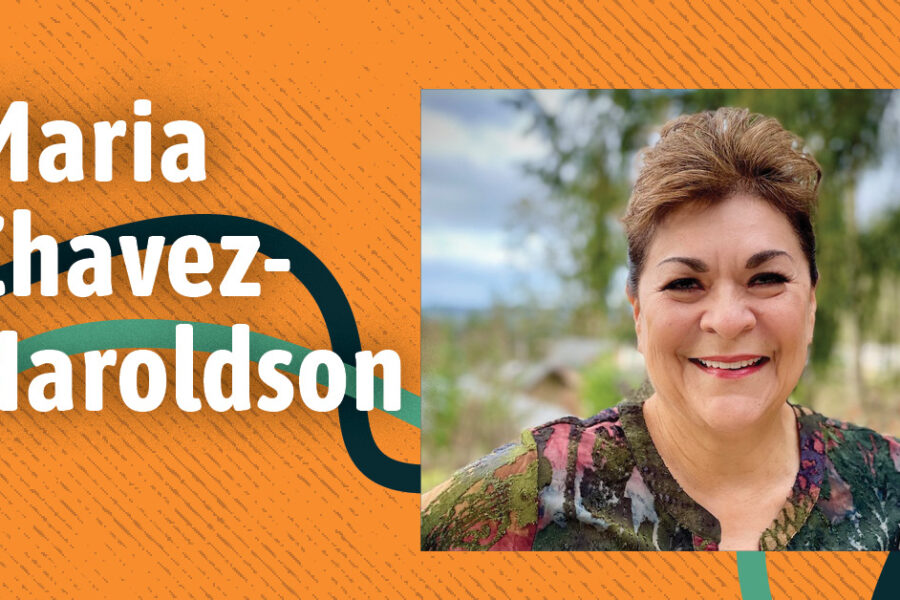We live in an era of broken norms, norms that defined this nation as a constitutional democracy. No longer can we rely on a President to respect the peaceful transfer of power without inciting a coup. No longer can we rely on the Senate to hold constitutionally required confirmation hearings on nominees to the Supreme Court. And no longer can we assume that long-standing civil rights and the doctrine of stare decisis will be respected by the Supreme Court. Never in the history of the United States has the Supreme Court reneged on a Constitutionally protected civil right. Never!
Until now.
This week, we saw a leaked draft of an opinion in Dobbs v. Jackson Women’s Health Organization, and we learned that a bare majority of the Court is poised to ignore nearly fifty years of settled precedent and overturn Roe v. Wade. The 67-page draft decision, written by Justice Samuel Alito, holds that the decision in Roe is unworthy of protection under the doctrine of stare decisis (binding precedent) because, in his mind, it was “egregiously wrong from the start.” This despite the fact that Roe has been repeatedly reaffirmed by the Court over the past 50 years, most notably in Casey v. Planned Parenthood of Southeastern Pennsylvania in 1992. In this radical draft opinion, Justice Alito does not simply change the boundaries of Roe, he completely abrogates it.
The right to liberty, guaranteed in the Due Process Clause of the Fourteenth Amendment, will no longer protect women from the unreasonable intrusion of government in their wombs. The States will now be free to completely ban abortion and to criminalize the termination of any pregnancy at any stage of gestation from the moment of conception. The draft decision holds that:
“A law regulating abortion…must be sustained if there is a rational basis on which the legislature could have thought that it would serve legitimate state interests. These legitimate state interests include respect for and preservation of prenatal life at all stages of development.”
This is an extremist result. Gone is any attempt to balance the competing interests of a fertilized ovum as it develops through 40 weeks of gestation with the liberty interests of the pregnant woman. Gone is the three-trimester analysis of Roe that gave greater weight to the rights of the mother during the earliest stages of pregnancy and greater weight to the rights of the fetus during the later stages of pregnancy. Now, women will have absolutely no right to the autonomy of their own bodies. Women and young girls may be forced to carry their pregnancies to term and give birth. This will be true in cases where the parent cannot provide for the child, in cases of rape or incest, even in cases in which the woman’s own health is in peril. It will even be true in cases in which the mother herself is a mere child. (For example, see the testimonial from the doctor of an 11-year-old girl impregnated by a pedophile relative here.) The Mississippi law that is the subject of this lawsuit makes no exceptions for rape or incest. The court is about to uphold that statute as a legitimate exercise of state power.
The premise of the decision is that abortion was not entitled to the “liberty” protections found in the Due Process Clause of the Fourteenth Amendment because abortion was neither an express right in the Constitution nor a right that was “deeply rooted in our history and tradition” at the time the Fourteenth Amendment was adopted in 1866. The problem, according to many legal scholars and historians, is that Justice Alito was wrong about our history.
Under the “common law” inherited from England, abortion was illegal only after “quickening,” that moment when the mother can feel the movements of the fetus. Until then, the mother had an absolute right to abortion without criminality. Quickening usually occurs around the 15th to 16th week of gestation. That was largely the state of our law until the mid-19th century. Thereafter, many states began to restrict abortion but not entirely.
According to Aaron Tang, professor of law at UC Davis, the best evidence is that at least 21 of the 36 states in 1866 prohibited abortion only after quickening. Until then, it was free from any form of criminal punishment. In short, early-term abortion was indeed a right deeply rooted in our history and traditions justifying its protection as a liberty freedom under the Fourteenth Amendment. The Roe decision made clear that during the first trimester (13 weeks) abortion was protected and could not be regulated by states. More restrictions could apply in the second trimester, and abortion was generally unprotected under Roe in the third trimester. According to the Guttmacher institute over 96% of abortions today occur before 16 weeks of gestation. Yet, this decision would empower the states to implement outright bans on abortion beginning with the moment of conception.
In many states, that door will slam immediately after the decision is rendered. According to the Guttmacher Institute:
- 26 states are certain or likely to ban abortion entirely.
- 9 states retain their unenforced, pre-Roe abortion bans. Those bans could immediately be enforced once again with no new legislative action required.
- 13 states have post-Roe laws to ban all or nearly all abortions that would be triggered and enforceable if Roe were overturned.
In 2021, conservative-led state legislatures enacted a record 108 abortion restrictions in 19 states. But if this opinion is adopted by the Court, these efforts will grow even more extreme. No longer will we see ridiculous obstacles to abortion like vaginal probes, parental and spousal consent, forced viewing of “educational” videos, state-mandated pre-abortion “counseling”, or long waiting periods, all meant to harass women and erode the edges of Roe v. Wade. Instead, we will just see outright bans.
During oral arguments on this case held December 1, Justice Amy Coney-Barrett suggested that the injustice of forcing a woman to become a mother, to carry a pregnancy to term and deliver the unwanted child, is answered by the fact that most states now have “safe-haven” laws that allow people to anonymously surrender their newborn babies at a fire station or hospital. This ignorant and Pollyannaish comment on the nature of women’s reproductive healthcare decisions and the impact of an unwanted pregnancy on one’s life, health, and safety is precisely the reason the government should stay out of the doctor-patient relationship.
Many of you reading this message are too young to remember a pre-Roe America, but I am not. I remember when the decision was first announced on January 22, 1973. I was a freshman in college, and I remember seeing the headline and thinking back on the horror stories of abortion I had heard from women in my life. This ruling, in Roe v. Wade, promised an end to back-alley abortions performed under barbaric and filthy conditions, conditions that led many women to bleed to death or die of resulting infections. In many cases, women were badly mutilated and unable to conceive again. Of course, back then, wealthy women and the girlfriends of wealthy politicians could access this form of healthcare. This ban will not affect them. They will find a way to get to a state that protects abortion services. The poor do not have that luxury and this decision will most harm Black people, people of color, Indigenous people, and those living in poverty. In many states, the closest abortion provider will be over 500-600 miles away. The Supreme Court is about to send us back to the Dark Ages.
This decision is not only an attack on a fundamental freedom, it is a subversion of our democracy. In a recent ABC News poll, over 70% of Americans believe that the decision to have an abortion is one that should be left to the patient and her doctor.
So how did we get to the point where the Supreme Court so badly reflects the views and values of this nation? It starts with the Senate, which itself is a wildly undemocratic institution. It was conceived by the founders to placate the less populous slave states in the South and to encourage them to ratify the Constitution. But, over time, it’s resulted in gridlock and dysfunction. Today, 50% of the Senate is elected by states that represent only 17.3% of the U.S. population. That’s right, half the Senators are elected by about one-sixth of our population. Consequently, the Senate rarely represents the views and values of the nation.
Yet, it’s the Senate that’s charged with providing “advice and consent” regarding a President’s nominees to the Supreme Court. This has not always been such a barrier to appointment of progressive justices. In 1993, the Senate confirmed Ruth Bader Ginsburg to the Supreme Court on a vote of 96-3. But, those days are gone. There is a complete absence of political comity within Congress and a complete lack of respect for its Constitutional duty to give “advice and consent” for qualified judicial candidates. The most egregious example of this came in 2016 when President Obama nominated Judge Merrick Garland to the Court. The Republican-led Senate simply refused to hold a confirmation hearing for nearly 11 months while they ran out the clock on the Obama Presidency. Instead, the seat was filled by President Trump with Justice Neil Gorsuch. Amy Coney Barrett, on the other hand, was rushed through the confirmation process in the last few weeks of the Trump presidency. We therefore have a court that lacks legitimacy and one that badly fails to represent the views of the American people. This is not the democracy our founders envisioned.
But the most alarming aspect of this decision is that it has implications far beyond Roe and abortion rights. The reasoning of this decision and the Court’s willingness to abandon 50 years of precedent draws into serious question many other civil rights we’ve fought hard to achieve over the last 60 years, including the liberty right of persons to buy and use contraceptives without government restriction (Griswold v. Connecticut, 1965); the liberty rights to engage in consensual non-vaginal sexual relations without being prosecuted under state sodomy laws (Lawrence v. Texas, 2003); the right of interracial couples and same-sex couples to marry as guaranteed by both the Due Process Clause and the Equal Protection Clause of the Fourteenth Amendment. (Loving v. Virginia, 1967) (Obergefell v. Hodges, 2015); and the right of gay and LGBTQ+ individuals to be protected from employment discrimination under Title VII of the Civil Rights Act of 1964. (Bostock v. Clayton County Ga., 2020).
These are not paranoid concerns. Many forms of birth control operate as abortifacients, including most birth control pills, the so-called “morning-after pill”, and the IUD. They don’t prevent fertilization, they prevent or disrupt implantation in the womb. Therefore, if the state has a legitimate interest in banning abortion to protect “all prenatal life at any stage of gestation”, these will no longer be Constitutionally protected forms of birth control. As for sodomy laws, Lawrence v. Texas was premised on the same general liberty arguments on which Roe was decided. The government has no legitimate interest in criminalizing what happens in the privacy of one’s own bedroom. If the Supreme Court is willing to jettison Roe on the basis that liberty rights do not apply to rights not expressly enumerated in the Constitution, then the same argument will apply to the right of adults to engage in consensual sex.
But most concerning to me is the right to marriage equality. Chief Justice Roberts wrote in his dissenting opinion in Obergefell v Hodges, “The majority’s decision is an act of will, not legal judgment. The right it announces has no basis in the Constitution or this Court’s precedent”. Given the makeup of this Court, there is little doubt that Chief Justice Roberts would join a new majority to overrule Obergefell on the same basis as this abortion case, that it is unworthy of protection under the doctrine of stare decisis because, in his mind, it was “egregiously wrong from the start.” States would again be free to ban same-sex marriages and to refuse to recognize same-sex marriages performed in other states.
So, this immediate attack on women’s reproductive rights clearly heralds a coming era of conservative judicial activism. If the five extremist justices led by Justice Samuel Alito have their way, they will overrule the will of a large majority of Americans and force us to live our lives under a new Puritanism. Many fundamental freedoms will likely be abolished. The norms of democracy are under attack.




